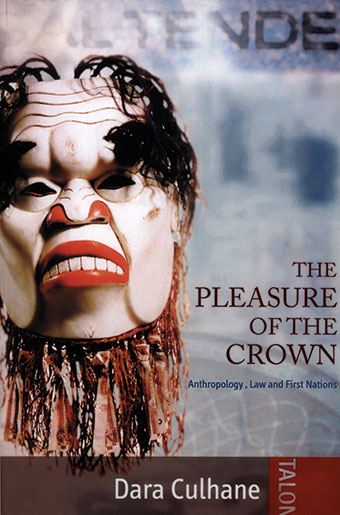Paperback / softback
ISBN:
9780889225138
Pages: 180
Pub. Date:
March 15 2005
Dimensions: 9" x 6" x 0.375"
Rights: Available: WORLD
Categories
Non-Fiction / SOC021000
- SOCIAL SCIENCE / Ethnic Studies / American / Native American Studies
Shop local bookstores
Reflections on Life in Downtown Eastside Vancouver
Edited by Leslie Robertson & Dara Culhane
News stories of the less fortunate, the socio-economically disenfranchised in North America are too often presented to fascinate or horrify their consumers with a construct of stereotypes which commodify and intentionally erase the real lives of people “covered” by the popular media.
In compiling this collection of seven life stories from Vancouver’s “Downtown Eastside,” the editors set out to create a space for the voices of women who are seldom heard on their own terms—the words of people who are publicly visible yet who, due to the blur of preconceptions that surround Vancouver’s inner city, remain unseen. To many, the women who offer their stories here are “people without history,” defined only by belonging to a neighbourhood branded by layers of stigma. Their diverse histories are rarely included in the cacophony of media depictions of urban poverty: the “drug problem,” “prostitution” or statistics on crime and violence. These women share the stories of their complex pathways from childhood into and out of the “Downtown Eastside,” through periods of addiction and recovery, strength and illness, affluence and poverty. They confront and challenge the familiar stereotypes applied to drug users, to “wayward women,” and to those who live with disease and/or mental illness.
Leslie A. Robertson’s and Dara Culhane’s introductions to both the collection and the individual stories provide an ethnographic context for a whole culture of complex individuals too often hidden in plain sight within a North American society which defines people more by what they have as consumers, than by who they are as people.
Short-listed 2005 City of Vancouver Book Award
Short-listed 2006 The George Ryga Award for Social Awareness in Literature
Short-listed 2005 City of Vancouver Book Award
“Editors Leslie Robertson and Dara Culhane [create] sympathetic, on-going dialogues between themselves and their subjects. The result is a page-turning, survival handbook for anyone wishing to understand self-sabotage and the guts required to rise above shooting yourself in the foot … In this excellent and necessary book it’s the women’s searing self-honesty that renders them visible. Through their naked eyes, Vancouver’s Downtown Eastside burns with a terrible light that mirrors all humanity.”
— subTerrain
“Even the most candid media exposés on women’s experiences in the Downtown Eastside cannot touch what the bulk of In Plain Sight contains: their uninterrupted voices and stories … We learn that it is our own sense of futility and despondency that blinds us. And we learn about how women do function inside the violence, addiction, and disease … Laughter and acceptance punctuate these pages and, above all else, hard-won resiliency conquers all.”
— Vancouver Review
“We will never know the whole of the ‘real’ lives told in this book, but with exemplary honesty and a great deal of tenderness both toward their wounded sisters and brothers and themselves, the women of In Plain Sight have taken us into their confidence and given us a look. We owe them a debt of gratitude.”
— Myrna Kostash, Award Jury, George Ryga Award for Social Awareness in Literature
“In Plain Sight is a welcome addition to the growing literature on housing and health, and its ultimate strength lies in the respect it shows the women who were interviewed. While rooted in the distinct geography and history of Downtown Eastside Vancouver, it should be compulsory reading for anyone interested in making social policy that is attentive to the needs of women living in Canada’s marginalized urban communities.”
— BC Studies
“Draws attention to the politics of representation in very many ways, and is especially tuned-in to the politics of editing and of creating composite texts … In Plain Sight aimed for responsible representation at each step in the construction of the narrators’ stories and the book … Through their research and accounts, the authors of In Plain Sight reflect upon and, in my view, unpack and undo the stereotyping cultural figures of the junkie, criminal, ‘heroine,’ diseased, prostitute, unfit mother, homeless, dispossessed, underclass … Perhaps when In Plain Sight readers are given yet another narrow, stereotyped image of people who live and work on the Downtown Eastside, the narrators’ words will continue to offer a different, more complex vision.”
— Vancouver Rain Review of Books
“In Plain Sight is a vivid telling of lives from women seldom heard from … It works as a snapshot of women’s lives through hardship and challenges.”
— Herizons








